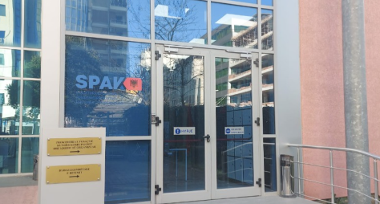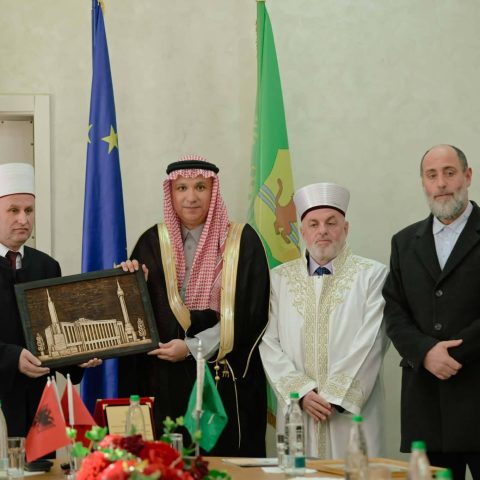This is the final version of this story, which has been updated with results. Last updated May 16 at 9:40 a.m.
TIRANA, May 16, 2023 – Albania’s ruling Socialist Party has scored a sweeping victory, the largest in post-communist Albania in a competitive election, winning 54 of the country’s 61 mayoral elections, including every single large city.
Counting is still taking place for municipal council seats, which will give a chance to the 40 parties and several independents running to see the support they enjoy.
-Socialists become dominant party-
The Socialist Party of Prime Minister Edi Rama has won all the key mayoral races of the largest cities of Tirana and Durres, as well as Shkoder, the municipality they had never been able to win since the fall of communism. SP also has confirmed wins by wide margin in Vlore, Korce, Fier and Elbasan.
In Tirana, incumbent Socialist mayor Erion Veliaj won with more than 57,000 votes than the center-right coalition candidate, Belind Kellici. In third place was hard left newcomer Arlind Qorri with 4.7 percent of the vote. Democratic Party faction candidate Roland Bejko ended in fourth place with 4.3 percent of the votes. The other two candidates received less than 1 percent of the vote.
In Durres, a city where a close race was predicted, the Socialist candidate Emiriana Sako won with a safe margin over the opposition candidate Igli Cara.
A big blow for the opposition is the city of Shkoder, its historical stronghold, where the socialist candidate Benet Beci won over incumbent Bardh Spahia.
SP has become Albania’s dominant party in the past decade, holding power centrally and locally over a divided opposition.
-Opposition’s worst result on record-
SP’s main rivals — the Together We Win coalition — have suffered the worst electoral results for the opposition ever, with the exception of the 2019 elections, which the opposition boycotted. They’ve only been able to win a handful of small municipalities.
Together We Win coalition consists of the Democrats led by former Prime Minister Sali Berisha, the Freedom Party of former President Ilir Meta, and the Union for Human Rights Party of the Greek minority and Christian Democrats.
The coalition scored a consolation price win in Kavaja, a center-right bastion, in a tight race. The other small municipalities coalition won in Has, Mirdita, Pukë, Fushë Arrëz, Memaliaj and Himara.
The latter turned into a hotspot, after the arrest of opposition candidate Fredi Beleri, under accusations of vote buying, an arrest that led to a spat with neighboring Greece as he is a representative of a Greek minority party. Beleri has won in a tight race, according to the preliminary results.
-Low turnout-
The elections saw a lowest turnover ever in competitive elections in post-communist Albania at 36 percent. Voter turnout was much lower than the most recent general elections, according to data from the Central Election Commission.
About 1.25 million votes were cast on Sunday, out of 3.65 million citizens that have the right to vote. About one third are believed to live abroad and cannot vote unless they travel back to Albania.
Albania is in the midst of a new emigration wave, so that has influenced the vote too, according to analysts, but numbers also indicate that many opposition supporters who reside in Albania did not turn out to vote as divisions inside the opposition had turned off many voters.
The only municipality that was not won by either of the two main groupings was that of Finiq, a Greek minority municipality, where the Socialists did not compete, allowing the Mega Party, which is mainly supported by the Greek minority, to win.










